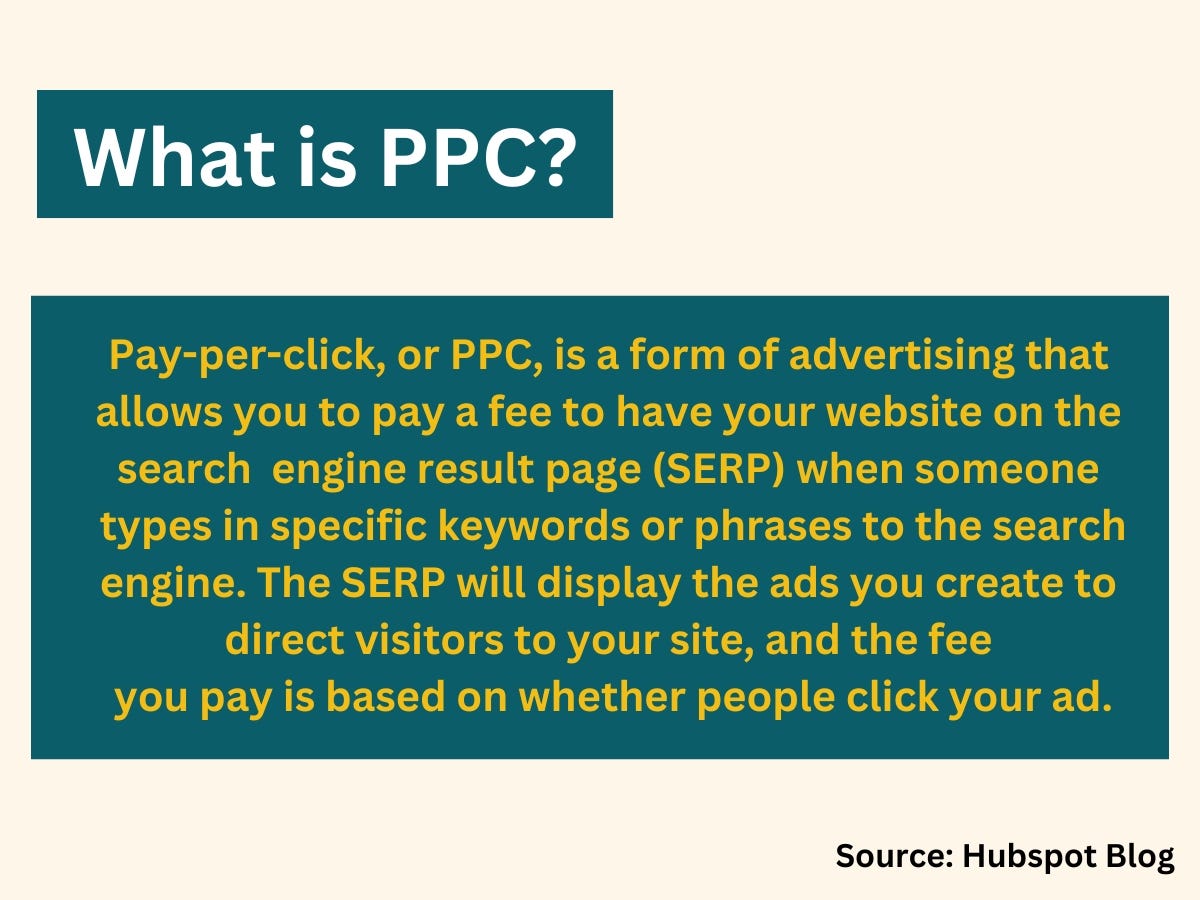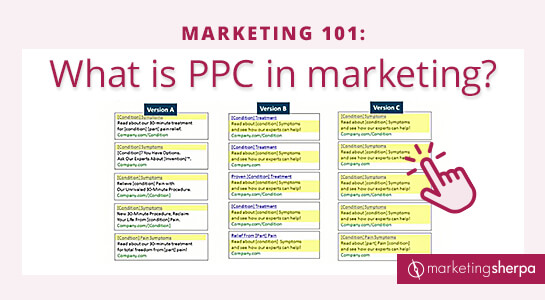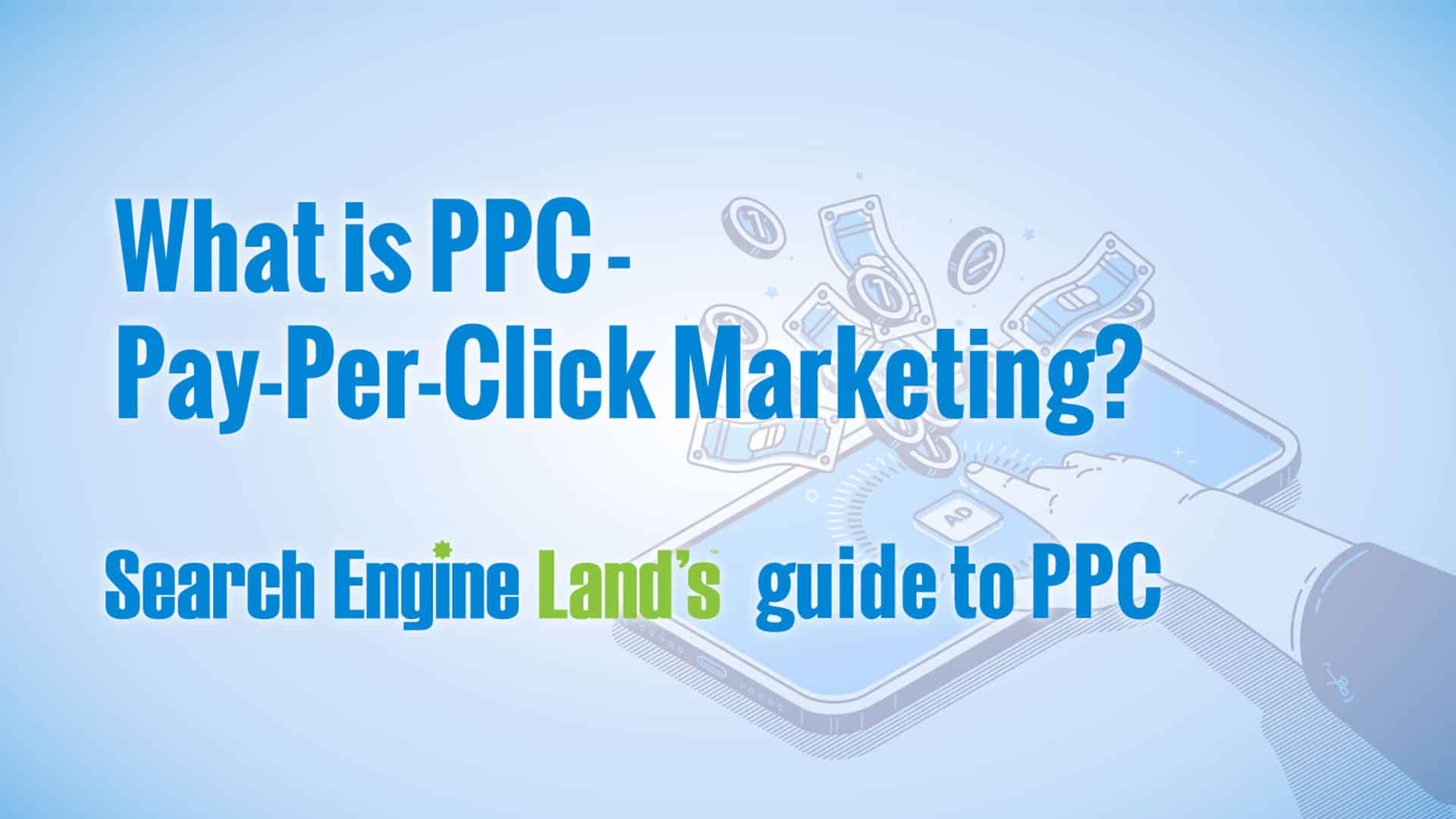PPC in marketing means Pay-Per-Click. It’s an online advertising model where advertisers pay each time someone clicks their ad.
Pay-Per-Click advertising is a crucial strategy for businesses aiming to boost their online presence. This model allows advertisers to bid for ad placements in a search engine’s sponsored links. Businesses only pay when their ad is clicked, making it cost-effective.
PPC can quickly drive targeted traffic to a website, helping to increase conversions and sales. It provides measurable results, enabling advertisers to track and optimize their campaigns effectively. Keywords are vital in PPC, as they determine which ads appear in search results. This method is popular on platforms like Google Ads and Bing Ads.

Credit: medium.com
Introduction To Ppc In Marketing
PPC stands for Pay-Per-Click. It is an online advertising model. Advertisers pay each time a user clicks their ad. PPC ads can appear on search engines, websites, and social media platforms. Google Ads is one of the most popular PPC platforms. Ads can target specific keywords, reaching potential customers. This means you only pay for actual clicks. This can help manage your advertising budget effectively. PPC can drive traffic to your website quickly. It’s a way to gain visibility and attract new customers.
PPC provides immediate results. Unlike organic search, it doesn’t take months. You can see traffic and conversions quickly. PPC allows for precise targeting. Ads can reach the right audience based on keywords, location, and interests. This ensures your ads are seen by people who are interested. PPC also offers measurable results. You can track how many clicks, impressions, and conversions you get. This data helps optimize your campaigns. With PPC, you can control your budget and bidding. This makes it a flexible marketing strategy.

Credit: sherpablog.marketingsherpa.com
Key Components Of A Successful Ppc Campaign
Picking the best keywords is very important. Use tools to find popular search terms. Focus on keywords that match your business. Avoid using too many broad keywords. This helps in getting more relevant clicks. Long-tail keywords can bring in targeted traffic. Regularly update your keyword list to stay relevant.
Good ad copy grabs attention quickly. Use strong headlines that speak to your audience. Include a clear call to action. Make sure your ad copy is short and to the point. Highlight benefits of your product or service. Test different versions of your ad to see what works best.
The landing page must match the ad’s promise. Keep the page design clean and simple. Ensure fast loading times. Use clear headlines and easy-to-read text. Include a strong call to action. Make sure the page is mobile-friendly. Regularly test and update your landing page for better results.
The Role Of Ppc In Digital Marketing Strategy
Pay-per-click (PPC) drives targeted traffic to websites, boosting visibility and conversions. This digital marketing strategy involves advertisers paying a fee each time their ad is clicked.
Integrating Ppc With Seo
PPC and SEO work well together. PPC ads can boost your website’s traffic quickly. This helps you see which keywords perform best. You can then use these keywords for your SEO strategy. SEO takes time to show results. PPC gives instant visibility. Both together give a balanced approach. Your brand gets more exposure. More exposure means more potential customers.
Leveraging Social Media For Ppc
Social media platforms are great for PPC campaigns. They have millions of users. Ads on these platforms reach a large audience. Social media ads can be targeted. You can choose age, location, interests, and more. This makes your ads more effective. People spend a lot of time on social media. Your ads are more likely to be seen. This leads to better engagement and conversions.

Credit: searchengineland.com
Analyzing And Measuring Ppc Success
PPC stands for Pay-Per-Click. It is a type of online advertising. The advertiser pays a fee each time someone clicks their ad. Important metrics to track include Click-Through Rate (CTR), Cost Per Click (CPC), and Conversion Rate. CTR shows how often people click your ad. CPC tells you how much each click costs. The conversion rate shows how many clicks lead to a sale or action.
Many tools help track PPC success. Google Analytics is one of the most popular. It shows how users interact with your ads. Google Ads also offers detailed reports. Another tool is SEMrush. It helps analyze competitors. Ahrefs tracks backlinks and keywords. These tools provide valuable insights. They help optimize your PPC campaigns.
Common Challenges In Ppc Marketing
PPC campaigns can be tricky. Mismanaging your budget is a big issue. Spending too much on ads can hurt your business. Always set a clear budget. Use targeted keywords to reach the right audience. Avoid using broad keywords. Broad keywords can drain your budget fast. Track your campaign performance regularly. Adjust your strategy based on the results. Ignoring data can lead to poor decisions. Make sure to split-test your ads. This helps in finding the best performing ad copy.
Search engines update their algorithms often. These changes can impact your PPC campaigns. Stay updated with the latest trends. Follow industry blogs and forums. Use tools that track algorithm updates. Adjust your campaigns accordingly. Ignoring updates can lead to lower ad performance. Always be ready to tweak your strategies. Flexibility is key in PPC marketing.
Future Trends In Ppc
PPC has changed a lot over the years. Early PPC was simple, with basic ads. Now, there are many ad types and strategies. Machine learning helps target the right audience. Social media platforms are also big in PPC today. Small businesses can compete with big brands. PPC tools are more advanced and user-friendly. Real-time data helps make quick decisions. The future of PPC looks bright and exciting.
New technologies are shaping PPC advertising. Artificial Intelligence (AI) is a game-changer. AI helps create better ads. Voice search is also growing fast. People ask their smart speakers for information. Augmented Reality (AR) ads offer interactive experiences. These trends will change how we see PPC. Staying updated is key to success. Keep learning about these new tools. They will help you stay ahead in PPC advertising.
Frequently Asked Questions
What Is Ppc And How Does It Work?
PPC stands for Pay-Per-Click. Advertisers pay a fee each time someone clicks their ad. It drives traffic to websites.
What Is An Example Of A Ppc?
An example of PPC is Google Ads. Businesses bid on keywords to display ads on Google search results.
What Is Ppc In Terms Of Marketing?
PPC stands for Pay-Per-Click. It is an online advertising model where advertisers pay each time a user clicks their ad.
What Does Ppc Stand For?
PPC stands for Pay-Per-Click. It’s an online advertising model where advertisers pay each time a user clicks on their ad.
What Is Ppc In Marketing?
PPC stands for Pay-Per-Click, a digital advertising model where advertisers pay a fee each time their ad is clicked.
Can Unlocking the Power of PPC Advertising Lead to Ad Success in Marketing?
Curious about how PPC advertising works and its potential for ad success in marketing? By targeting specific keywords, setting bids, and creating compelling ad copy, businesses can reach their desired audience and drive conversions. Unlocking the power of PPC requires strategic planning and continuous monitoring to optimize campaign performance.
Conclusion
Understanding PPC is essential for successful digital marketing. It drives targeted traffic and boosts brand visibility. Implementing PPC strategies effectively can lead to higher ROI. Stay updated with trends and optimize your campaigns. Embrace PPC to achieve your marketing goals and grow your business.
